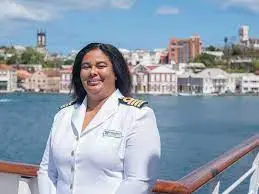Securing your maritime career begins with the right certifications. A Continuous Discharge Certificate (CDC) and Standard of Training, Certification, and Watchkeeping for Seafarers (STCW) qualifications are essential for seafarers worldwide. These documents validate your expertise and open doors to a range of maritime opportunities. Let us guide you through the process of obtaining these crucial certifications.
Standards of Training, Certification, and Watchkeeping for Seafarers (STCW)
STCW: Essential for a Maritime Career
What is STCW?
The Standards of Training, Certification, and Watchkeeping for Seafarers (STCW) is an international convention developed by the International Maritime Organization (IMO) to ensure seafarers possess the necessary competencies to perform their duties safely and efficiently. It sets minimum qualification standards for seafarers on all types of vessels, from small fishing boats to large tankers.
Why is STCW Important?
- Safety: STCW certification guarantees a minimum level of competence among seafarers, enhancing overall maritime safety.
- Global Recognition: STCW certificates are recognized worldwide, making it easier for seafarers to find employment on international vessels.
- Career Advancement: Obtaining higher-level STCW certifications can lead to promotions and career progression.
- Legal Compliance: Many countries mandate STCW certification for seafarers operating within their territorial waters.
Obtaining STCW in Kenya
To obtain STCW certification in Kenya, you must undergo approved training programs and pass the required examinations. The Kenya Maritime Authority (KMA) is the responsible body for issuing STCW certificates.
Key STCW Certificates:
- Basic Safety Training (BST): Mandatory for all seafarers, covering fire prevention, firefighting, personal survival techniques, and first aid.
- Advanced Fire Fighting: Required for specific roles, such as fire control personnel.
- Proficiency in Survival Craft and Rescue (PSCRB): Essential for personnel involved in life-saving duties.
- Security Awareness Training (SAT): Mandatory for all seafarers to prevent maritime terrorism.
- Medical Care on Board: Required for personnel designated as shipboard medical assistants.
- Medical First Aid: Essential for all seafarers.
Cost of STCW Certification
The cost of STCW certification varies depending on the specific course, training provider, and location. It’s advisable to contact different training institutions in Kenya to obtain accurate pricing information.
Note: The cost often includes tuition fees, examination fees, and certification charges.
By investing in STCW certification, seafarers enhance their career prospects and contribute to the safety of the maritime industry.
Continuous Discharge Certificate (CDC)
The Continuous Discharge Certificate (CDC): Your Maritime Passport
What is a CDC?
A Continuous Discharge Certificate (CDC) is a vital document for seafarers. It serves as a passport, detailing a seafarer’s employment history, qualifications, and personal information. Issued by the maritime authority of a seafarer’s country, the CDC is a mandatory requirement for boarding most vessels.
Why is a CDC Important?
- Proof of Sea Service: The CDC records a seafarer’s employment history, including the ships they’ve worked on, their roles, and the duration of service. This is crucial for career progression.
- Visa and Immigration: Many countries require a CDC for visa applications related to maritime employment.
- Legal Compliance: It’s a legal requirement to carry a valid CDC while serving on a ship.
- Security: The CDC helps in identifying seafarers and verifying their credentials.
Obtaining a CDC in Kenya
To obtain a CDC in Kenya, seafarers must meet specific requirements set by the Kenya Maritime Authority (KMA). This typically involves:
- Meeting STCW Standards: Holding the necessary STCW certificates.
- Medical Fitness: Passing a medical examination.
- Personal Details: Providing accurate personal information, including passport details.
- Documentation: Submitting required documents, such as proof of identity and educational qualifications.
Note: The specific requirements and procedures may change, so it’s essential to check with the KMA for the most up-to-date information.
By understanding the importance of the CDC and following the correct procedures, seafarers can ensure smooth career progression in the maritime industry.



